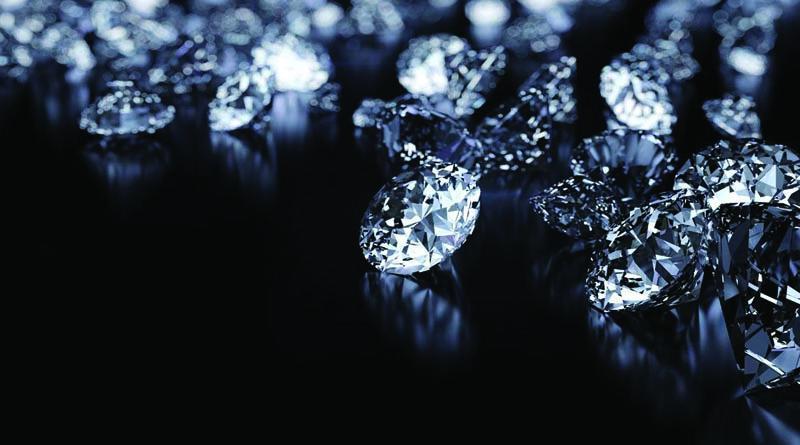Introduction to Lab-Grown Diamonds
What Are Lab-Grown Diamonds?
Lab-grown diamonds, oftentimes called engineered diamonds, are genuine diamonds established in a controlled environment rather than mined from the Earth. They have a comparable physical, substance, and optical properties as ordinary diamonds. The fundamental differentiation is their origin: lab-grown diamonds are made through human intervention, while ordinary diamonds form more than large number of years significant within the World’s body.
History and Headway of Lab-Grown Diamonds
Lab-grown diamonds have been around since the mid-20th 100 years, with their usage initially confined to industrial applications. It wasn’t long after the mid 2000s that movements in innovation considered the production of top score pearl grade diamonds. Today, they are a popular decision for fine jewels lab grown diamond studs, including diamond studs, due to their ethical and normal benefits.
Why Pick Lab-Grown Diamond Studs?
Ethical Considerations
One of the most compelling inspirations to pick lab-grown diamond studs is their ethical appeal. Regular diamond mining can involve enormous normal opportunities issues, including labor cheating. Lab-grown diamonds eliminate these concerns, as they are established in a controlled environment where laborers are managed fairly.
Normal Impact
Mining for customary diamonds can have a huge biological footprint, including normal surroundings decimation and water contamination. Lab-grown diamonds, of course, are had with minimal regular impact, making them a more sustainable decision for eco-conscious customers.
Cost Viability
Lab-grown diamonds are ordinarily more affordable than their normal accomplices. Since they don’t require wide mining and transportation, their creation costs are lower, translating to savings for the buyer. This infers you can get a bigger or more magnificent diamond for a comparative expense as a more unassuming normal one.
How Lab-Grown Diamonds Are Made
High Strain High Temperature (HPHT) Methodology
The HPHT system copies the customary conditions under which diamonds form, applying ludicrous strain and temperature to carbon. This methodology produces diamonds that are essentially indistinguishable from standard diamonds, both for all intents and purposes and plan.
Substance Smoke Proclamation (CVD) Technique
CVD involves creating a diamond jewel from a carbon-rich gas. The gas is ionized and stored onto a substrate, where it comes to fruition into diamond. CVD diamonds can be made in an extent of assortments and sizes, offering different decisions for purchasers.
Choosing the Right Lab-Grown Diamond Studs
Understanding the 4 Cs (Cut, Assortment, Clarity, Carat)
While choosing diamond studs, it’s earnest to understand the 4 Cs, which apply to both lab-grown and typical diamonds.
Cut
The cut of a diamond influences how it reflects light, impacting its overall splendor. Lab-grown diamonds can be cut to comparative raised assumptions as customary diamonds, ensuring you get a brilliance that is top score.
Assortment
Diamonds show up in an extent of assortments, from boring to shades of yellow and brown. Lab-grown diamonds are available in various tones, including extreme shades, providing flexibility in matching your own style.
Lab made diamonds, also known as synthetic diamonds, are created through advanced technological processes that mimic the natural conditions under which diamonds form. Using methods such as High Pressure High Temperature (HPHT) or Chemical Vapor Deposition (CVD), scientists can produce diamonds that are chemically and physically identical to those found in nature.
Clearness
Clearness suggests the presence of internal or outside surrenders, known as inclusions and blemishes. Lab-grown diamonds habitually have less inclusions than customary diamonds, leading to an all the more clear, more dazzling pearl.
Carat
Carat weight gauges the size of the diamond. Lab-grown diamonds offer incredible incentive for carat weight, allowing you to pick a bigger stone without breaking the bank.
Selecting the Best Setting
The setting of your diamond studs can determinedly influence their appearance. From model prong settings to current bezel settings, choosing the right setting ensures your diamonds are showcased to their fullest potential.
Lab-Grown Diamond Studs vs. Standard Diamonds
Toughness and Hardness
Both lab-grown and normal diamonds are also hard and solid. They score an ideal 10 on the Mohs size of hardness, making them resistant to scratches and sensible for ordinary wear.
Visual Differences
To the independent eye, there are no visible differences between lab-grown and ordinary diamonds. The two kinds display a comparative brilliance, fire, and scintillation, making it challenging to distinguish them without explicit equipment.
Long stretch Worth
While ordinary diamonds have historically been seen as more critical, the growing affirmation of lab-grown diamonds is shifting business sector insights. Lab-grown diamonds should retain their value, especially as innovation advances and customer inclinations create.
Caring for Your Lab-Grown Diamond Studs
Cleaning and Maintenance
Lab-grown diamond studs are quite easy to maintain. Customary cleaning with a delicate cleaning agent game plan and a sensitive brush will keep them sparkling. Avoid merciless manufactured compounds or ultrasonic cleaners, which can hurt the setting.
Storage Tips
Store your diamond studs in a fragile material or an alternate compartment in your jewels box to forestall scratching. Keeping them from different decorations stays aware of their pristine condition.
Well known Styles of Lab-Grown Diamond Studs
Model Round Studs
Round studs are an undying decision, known for their adaptability and model appeal. They capability outstandingly with any outfit, from easygoing to formal, making them a staple in any pearls grouping.
Princess Cut Studs
For a more current look, consider princess cut studs. Their numerical shape offers a contemporary twist on the praiseworthy stud design, ideal for adding a touch of sophistication.
Crown Studs
Crown studs include a central diamond incorporated by additional unobtrusive stones, creating a dazzling effect. This style works on the general gleam and makes the center stone appear to be bigger.
Buying Lab-Grown Diamond Studs: Tips and Beguiles
Finding a Reliable Seller
While purchasing lab-grown diamond studs, pick a reliable seller with a history of providing top score things. Look for affirmations and customer reviews to ensure you’re getting a genuine thing.
Understanding Attestation
Lab-grown diamonds should go with declaration from an apparent gemological institute. This declaration gives insights concerning the diamond’s quality and affirms its genuineness.
Setting a Financial arrangement
Determine your financial arrangement before shopping for diamond studs. Lab-grown diamonds offer extraordinary worth, however setting a financial arrangement assists you with narrowing down your decisions and find the best diamond within your expense range.
The Destiny of Lab-Grown Diamonds
Innovative Degrees of progress
As innovation continues to move, lab-grown diamonds are becoming more available and affordable. Innovations in progress strategies promise altogether more fantastic diamonds later on.
Market Examples and Forecasts
The market for lab-grown diamonds is growing rapidly, determined by customer demand for ethical and sustainable things. Forecasts suggest that lab-grown diamonds will end up being increasingly renowned, perhaps overtaking ordinary diamonds later on.
Conclusion
Lab-grown diamond studs offer a compelling choice as opposed to regular diamonds, combining ethical creation with cost viability and prevalent grade. With an extent of styles and decisions available, they take unique consideration of various inclinations and inclinations. As innovation and market designs create, lab-grown diamonds are set to transform into an extensively more prominent decision for discerning buyers. Whether you’re looking for a masterpiece or contemporary arrangement, lab-grown diamond studs are a sparkling showing of innovation and ethical craftsmanship.







